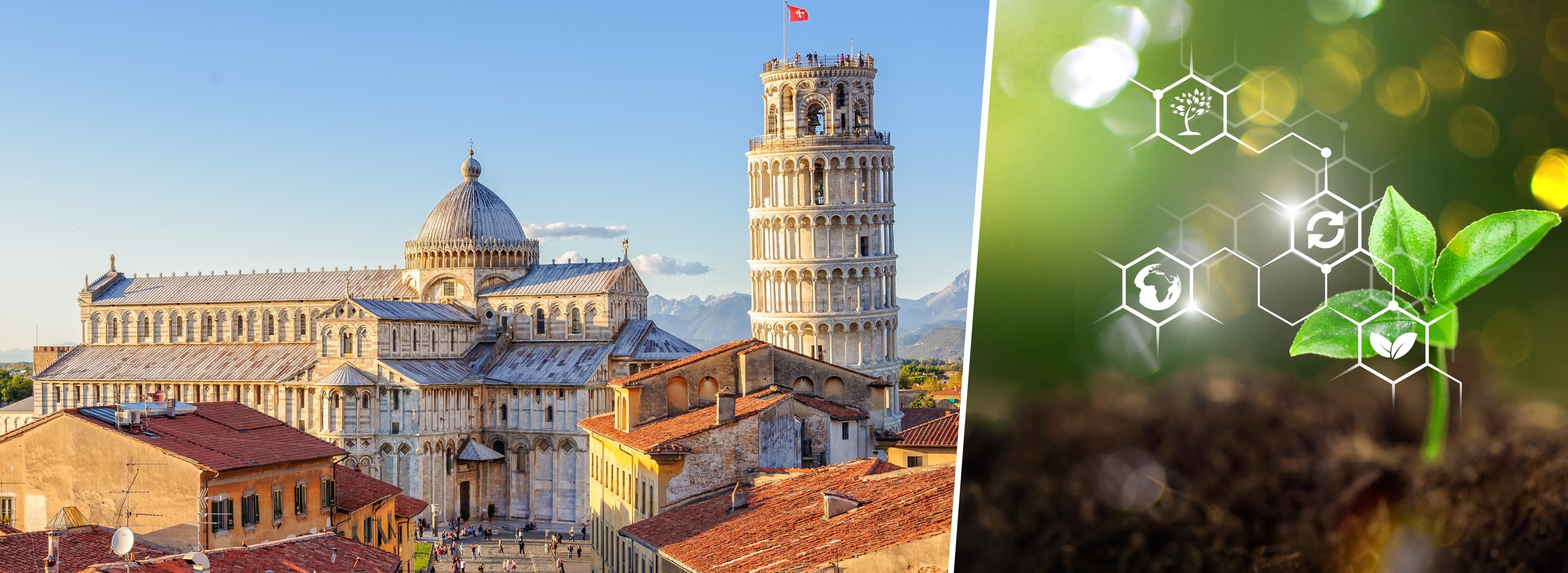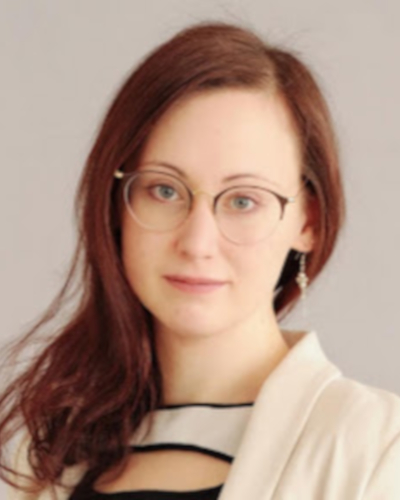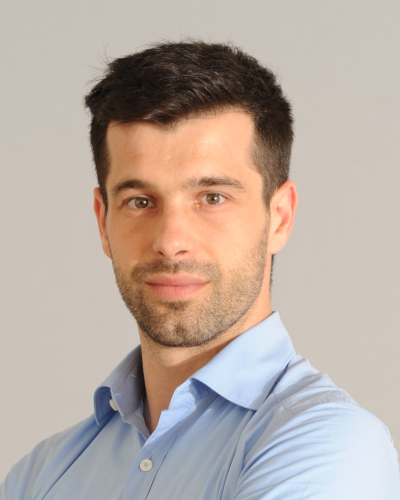SPECIAL SESSION #12
Vision Systems for Agri&Food Applications based on Embedded Processing
ORGANIZED BY
Cristina Nuzzi
University of Brescia, Department of Industrial and Mechanical Engineering, Italy
Simone Pasinetti
University of Brescia, Department of Industrial and Mechanical Engineering
Eduard Gregorio López
University of Lleida, Department of Agricultural and Forest Engineering, Spain
ABSTRACT
In the last years, vision systems have become more and more popular, especially in the agri&food sector. Through vision, a large amount of information can be acquired and processed to extract meaningful data, from mechanical dimensions and quantities of fruits and leaves to the movement patterns of insects.
Furthermore, vision is not limited to the visible spectrum: infrared and UV wavelengths also provide valuable data that can be used to monitor and analyze biological and chemical phenomena in plants, food, and livestock. Finally, vision systems can also be used to reconstruct the environment in a 3D way, hence providing a way for researchers to estimate the volumes and shapes of complex objects in the field. At the same time, embedded systems have become powerful enough to elaborate on board even complex data with performance comparable to computers. This allowed the development of small devices equipped with both intelligence and vision systems to monitor quantities directly in the field. This session's objective is to explore and discuss the potential of different vision systems beyond the classic color and monochrome information, such as thermal images, NIR, UV and UV fluorescence, multispectral and hyperspectral imaging, and 3D vision. Special attention will be given to applications developed to work in the field leveraging the potential of embedded systems to both acquire and process visual information.
Finally, the statistical and metrological validation of the proposed system is a fundamental aspect to be discussed in the works presented in this session.
TOPICS
The main topics of this session are:
- RGB image processing
- Infrared vision (thermal, NIR, MIR...)
- UV vision
- Multispectral and hyperspectral imaging
- 3D vision (stereo, time-of-flight, LiDAR...)
- Embedded processing systems from development to deployment
- Livestock monitoring
- 3D reconstruction and estimation of yield volume, plant shape, and fruit size
- Food quality measurements
- Chemical residue analysis on soil, plants, and raw food
- Metrological validation of the analysis process or pipeline
ABOUT THE ORGANIZERS
Dr. Cristina Nuzzi (born 1993) is an assistant professor in Mechanical and Thermal Measurements (ING/IND-12) with a research topic on the detection of weeds and crops using visual systems and deep learning since 2022. Dr. Nuzzi holds both a Bachelor's and Master's Degree in Automation Engineering (2015 and 2017 respectively) received from the University of Brescia. She received her Ph. D. degree in Mechanical and Industrial Engineering (track Applied Mechanics) in 2020 from UNIBS, with a dissertation about the concept of Meta-Collaborative Workstations and software designed to communicate with robots developed using vision systems and deep learning models. She is a member of the Vision Systems for Mechatronics division of the Laboratory of Mechanical and Thermal Measurements (https://vis4mechs.unibs.it/) since her Ph. D. Despite her young age, she is the first author of several publications on this subject, exploiting the capabilities of intelligent algorithms for robotics and biomechanical measurements. Therefore, Dr. Nuzzi has wide experience in the development, training, and utilization of deep learning models for vision data and image processing techniques, which she also used to conduct research for industrial partners during her post-doctoral years. Her expertise also includes data management and dataset creation, since she authored a public dataset published during her Ph. D., 3D data elaboration and processing, and software deployment for target embedded hardware. She co-tutored several Master's Degree theses even during her Ph. D. on the topic of measurements and intelligent algorithms.
Dr. Simone Pasinetti (born 1985) received his B.S. degree and M.S. degree (cum laude) in Automation Engineering from the University of Brescia in 2009 and 2011 respectively. He has a strong background in developing and characterizing vision systems and algorithms based both on deterministic and advanced (i.e. machine and deep learning vision processing) machine vision. Since 2020 he is an Assistant Professor in Mechanical and Thermal Measurements (ING-IND/12) at the University of Brescia, Italy. He has received the national scientific qualification in May 2021. He is currently the Head of the Vision Systems for Mechatronic division of the Mechanical and Thermal Measurement Laboratory of his department. He is also a participant of the COST Action CA21142 “Fruit tree Crop REsponses to Water deficit and decision support Systems applications (FruitCREWS)” where he brings his expertise in the development and integration of different kinds of measurement systems for agriculture and forestry. During his research career, he worked mainly on the development of measurement systems based on 2D and 3D vision. In particular, he worked on human kinematic analysis, liquid lens objectives applications, and 3D vision systems development. He studied new measurement techniques based on vision and developed new systems for applications for different fields such as biomechanics, medicine, robotics, cultural heritage, and industry. In recent years, his main research interests include vision and measurement systems for the agriculture and food industries.
Dr. Eduard Gregorio is an associate professor at the Department of Agricultural and Forest Engineering of the University of Lleida (Spain) and a member of the Research Group in AgroICT & Precision Agriculture (https://www.grap.udl.cat/en/). He holds a BS degree in mechanical engineering from the University of Lleida and an MS degree in industrial engineering from the Technical University of Catalonia (Spain). His scientific interests include the application of sensors in agriculture, LiDAR remote sensing, and precision agriculture. He has led the development of an innovative range‐resolved LiDAR system for real‐time monitoring of pesticide spray drift. His recent research focuses on the application of low-cost photonic sensors for the geometric characterization of crops and for fruit detection and sizing.
















